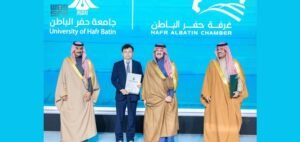Saudi multi-sector company WAJA Co. plans to create a joint venture in Egypt to develop and manufacture electric vehicles. According to the sources, the agreement, signed with the military group Arab Organization for Industrialization, based in Egypt, satisfies the demands of the local market and exports beyond. Egypt was placed 28th in the world in a global e-mobility index in October 2023, indicating the nation’s readiness to switch to electric vehicles.
In 2035, electric vehicles (EVs) may account for 50% of all car sales worldwide, according to a forecast published by the investment management company Goldman Sachs.
Furthermore, experts forecast that in the five years that follow, a comparable share of newly sold vehicles will be more sophisticated, be it fully or semi-autonomous vehicles. By 2030, Saudi Arabia aims 30 percent of all cars in Riyadh to be electric. This goal fits into a bigger plan to cut emissions in the nation’s capital by 50% in order to meet the nation’s goal of becoming carbon neutral by 2060.
The automotive electric vehicle (EV) market in the Middle East and Africa is expected to reach $9.42 billion by 2029, up from an anticipated $3.33 billion in 2024, according to research firm Mordor Intelligence’s January forecast. Over the forecast period from 2024 to 2029, the sector is expected to develop at a compound annual growth rate of 23.2%. The region’s governments are placing more emphasis on encouraging environmentally friendly automobile and spreading knowledge about energy storage options available in the renewable energy industry. In the near future, these initiatives should promote growth in the EV and related technology industries.
In a previous interview, Faisal Sultan, Vice President and Managing Director of Lucid Middle East, said that although the industry is still in its beginning, significant growth is anticipated in the future due to a growing demand among consumers in the region for the best environmentally conscious cars.
“We are already on a path for electric vehicles to become a part of our daily lives, and Lucid is eliminating the most common barriers to ownership, including price, performance, and driving range,” Sultan said.
Although the futuristic look of EVs makes them captivating, potential purchasers could be concerned about the additional infrastructure required to operate these vehicles. According to research firm Canalys, the global EV market is expected to reach 17.5 million units by 2024, growing by 27.1 percent. Environmentally friendly forms of transportation are becoming a major goal for the future, which will increase the EV industry exponentially.
For More Details: https://arabianworldmagazine.com/




